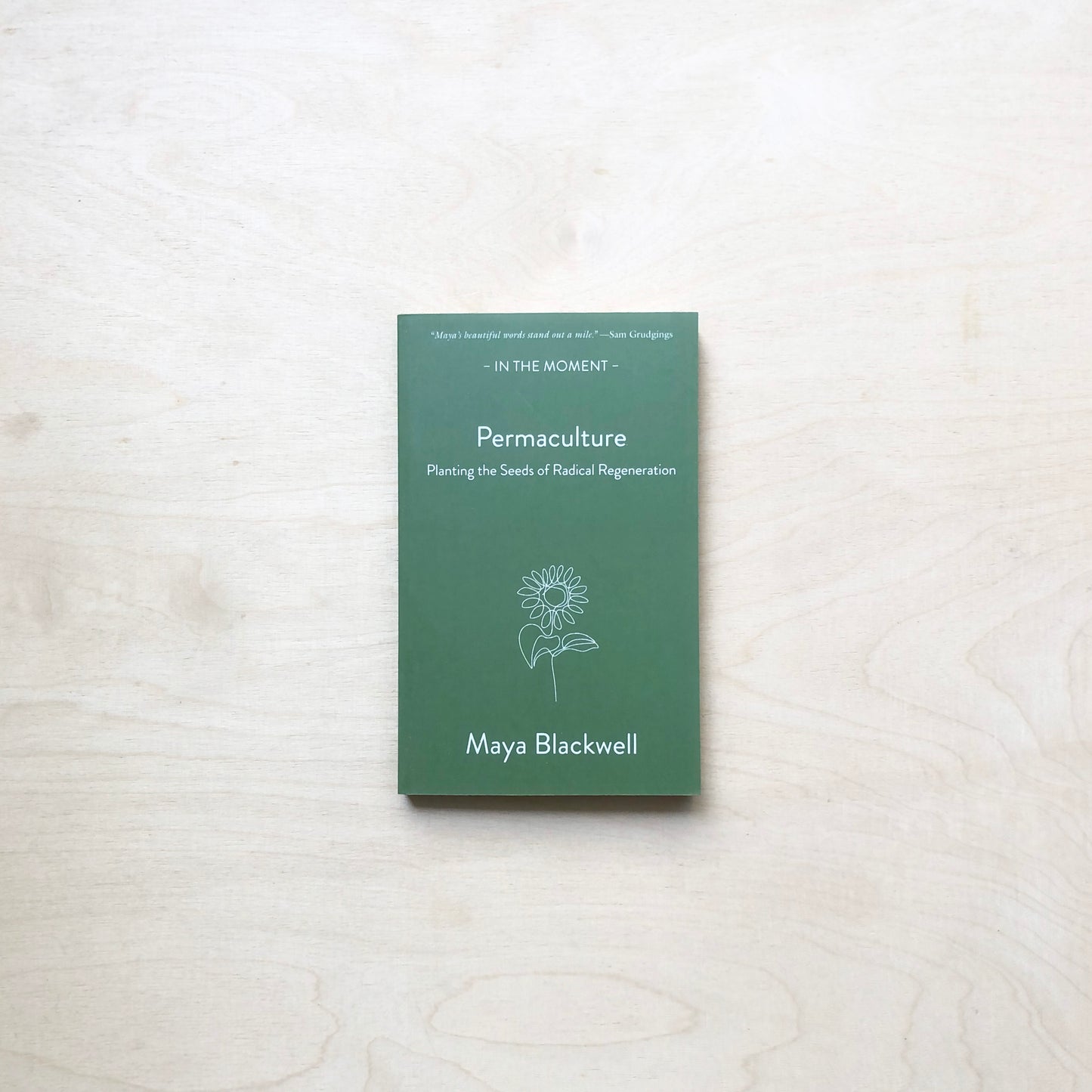Permaculture - Planting the seeds of radical regeneration - In the Moment Series
Permaculture - Planting the seeds of radical regeneration - In the Moment Series
Maya Blackwell
Saraband
2024
9781913393830Paperback
18 x 11 x 1.5 cm
160 pages
Couldn't load pickup availability
Permaculture needs all of us, and all of us need permaculture.
Permaculture is a way of farming, gardening, or managing land that emphasises a reciprocal relationship with nature. It’s a design process that works with wildness, not against it. And it’s an essential resource in the fight of our lives: tackling the climate crisis.
Here, permaculture practitioner and poet Maya Blackwell writes with expertise and personal experience of the transformative power of permaculture for both people and the planet. As well as tracing its evolution – from its roots in Indigenous societies to the important role it plays in urban allotments today – you will discover how the practice could nurture individual and collective wellbeing. There are opportunities throughout for reflection, creativity and connection. These present valuable lessons we can all learn from the principles of permaculture, to help us build resilience and lean into the long-term process of trying new things, adapting failures and reaping all that we sow.
Whether you’re completely new to permaculture or someone with years of experience wanting to reconnect with its history and core values, this book contains tools for growth that bring rewards far beyond the garden.
Maya Blackwell is a poet and author from Devon. She grew up in a woodland-based New Age community and explores the themes she absorbed there—of community and nature—throughout her work. Her writing interests include permaculture, well-being, nature connection, grief, creativity, womanhood, and the ocean. She is a prolific spoken-word performer, has been published in Helicon Magazine for the University of Bristol, and is a graduate of the University of Plymouth, with a FD Honors in Creative Art Therapies Studies.

